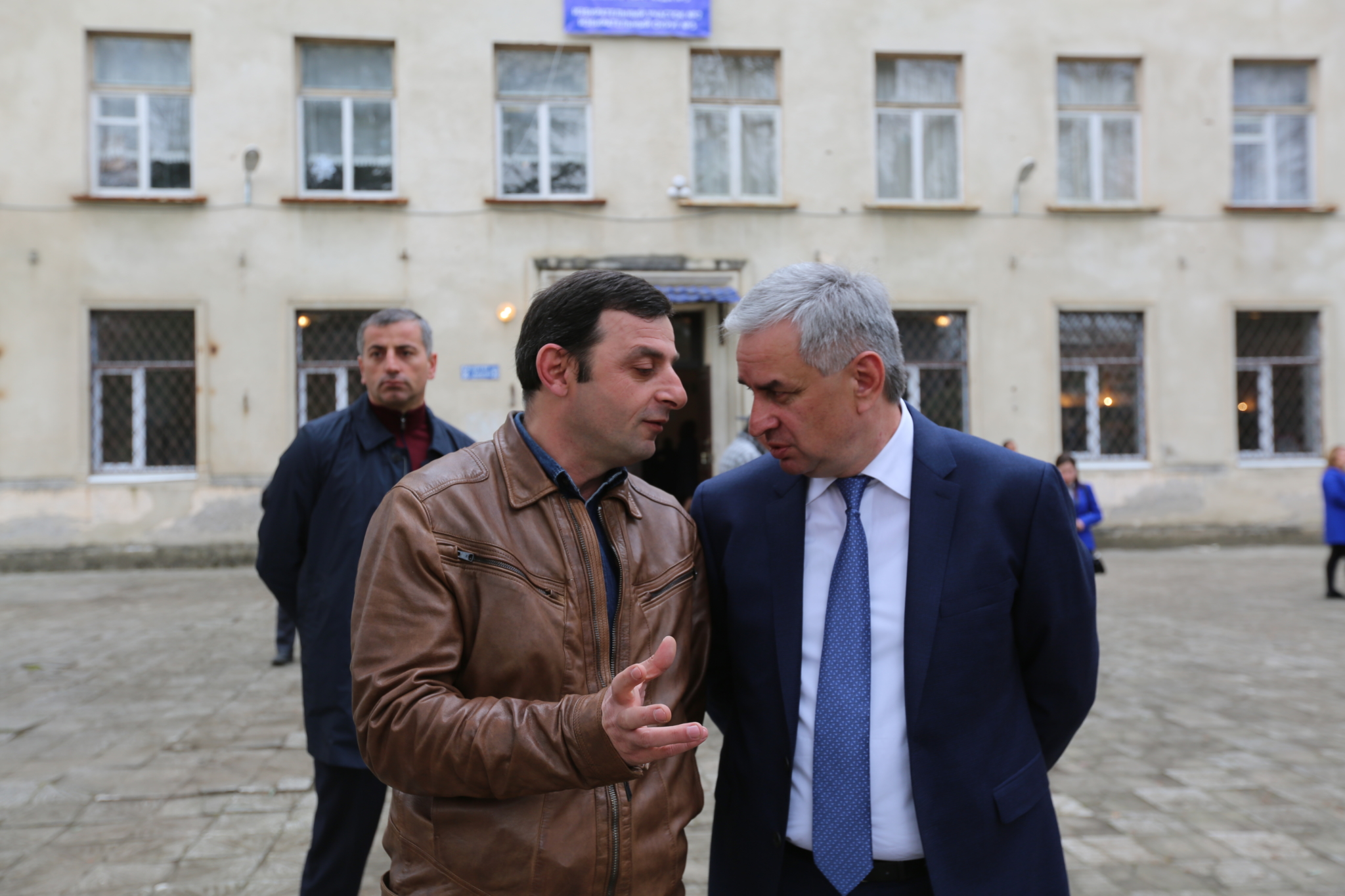Abkhazia to choose only 35 out of 137 MP candidacy bids
Photo Ibragim Chkadua
The total of 131,529 voters have been registered in Abkhazia this time.
People are facing a rather hard choice- there are 137 candidates contending for 35 seats in Parliament. In other words, there are on average 4 candidates per MP seat. But that’s on average. For example, there are2 constituencies where 8 candidates are contending for 1 MP seat.
We decided to ask some Sukhumresidents about their motives.
Question 1:
What major task would you set before the new Parliament?
Daur Kvitsinia, 56, a disabled veteran of the Patriotic War of the People of Abkhazia of 1992-1993 [termed by the Georgian side as the Georgian-Abkhaz war of 1992-1993; JAMnews]:
– I hope,there will be somepositive change, because many literate, young, purpose-oriented guys go to parliament. They build their careers, start presenting themselves to the society as politicians, and they can change something and bring things to the end. It’s not that they will just promise something, but rather will bring things to the end.
The first law that should be passed is the law on the disabled, war veterans. It’s the law, that was once written by the first president, Vladislav Ardzinba, but it wasn’t accomplished. The veterans don’t seek money. What they need is respect and attention.
Alan Jopua, 22. He is engaged in public activity.
-The Parliament’s key task is to ensure that all the laws that it adopts be executed.
Lana Cherkezia, 26, a housewife. She is raising a child:
– We expect that the laws will be strictly observed and the community will get united. I thing, the MPs primary task will be to elect a decent Parliament Speaker, who will then address the issues in tandem with the President.
Silvet Ajaral-oghly, 64, a pensioner, former medic:
– The Parliament’s major task is to focus more on the ordinary people. There are few who take care of us, the ordinary people. A pension makes RUB500, what’s there to talk about? How is one supposed to live on it? It’s hardly enough to buy a loaf of bread.










Question 2:
What’s the major problem of the outgoing parliament?
Daur Kvitsinia:
– At least half of the MPs did their job. However, when part of the Parliament works, while another one is just present and is busy solving their own problems, no laws will be ever fine-tuned. It’s a team and each member should do his/her job and push the matter through.
Alan Jopua:
– This parliament was very thoughtlessly issuing the laws. For example, when the VAT law was issued, taxes were increased by 10%. The MPs wrote it down into the law, but the failed to make estimates, they didn’t think of the consequences and how it all should be dealt with.
Lana Cherkezia:
-I think, there should be stricter requirements to the MPs. The age limit should be increased, so that only those, who have reached 25, can stand in election. There should be a certain service record, and not just that a person is working somewhere. There should be something for which he/she could be individually respected. Whereas people nowadays cast their ballots for those, whom they know, and there are fewer persons whom one can vote for proceeding from their biographies.
Silvet Ajaral-oghly:
– The problem of the incumbent parliament is that they go around in circle. We should give way to the youth, young people have different plans, different perspectives and different visions. I think, the new Parliament should be staffed only with individuals under 50.
Question 3:
What are the problems that the government can and should address?
Daur Kvitsinia:
-Healthcare. And, most importantly, the education, so that the youth can get higher education and then work in their degree field. That’s the most important thing.
And one more thing that I would like to mention – we should have the middle class. Now we only have the poor and the rich, and there is a big gap between them.
And my personal problem-I wish our living standards could be improved.
Alan Jopua:
– I’m accustomed to solve the problems myself, not waiting for others to come and solve my problems in my stead.
Lana Cherkezia:
– There are problems with water supply and roads. Electricity is a permanent and very acute problem. And, most importantly, the living conditions of people need to be improved. That’s what the government should do. And then the people will be more well-disposed toward the government and we will jointly achieve something.
People who are angry and suffer hardship will have no trust in government.
Silvet Ajaral-oghly:
– First of all, it’s healthcare. Medical services should be free of charge, as it used to be earlier, in Soviet times. But now it’s more difficult. And also, focus more on the youth, since they are at a loose end.



















